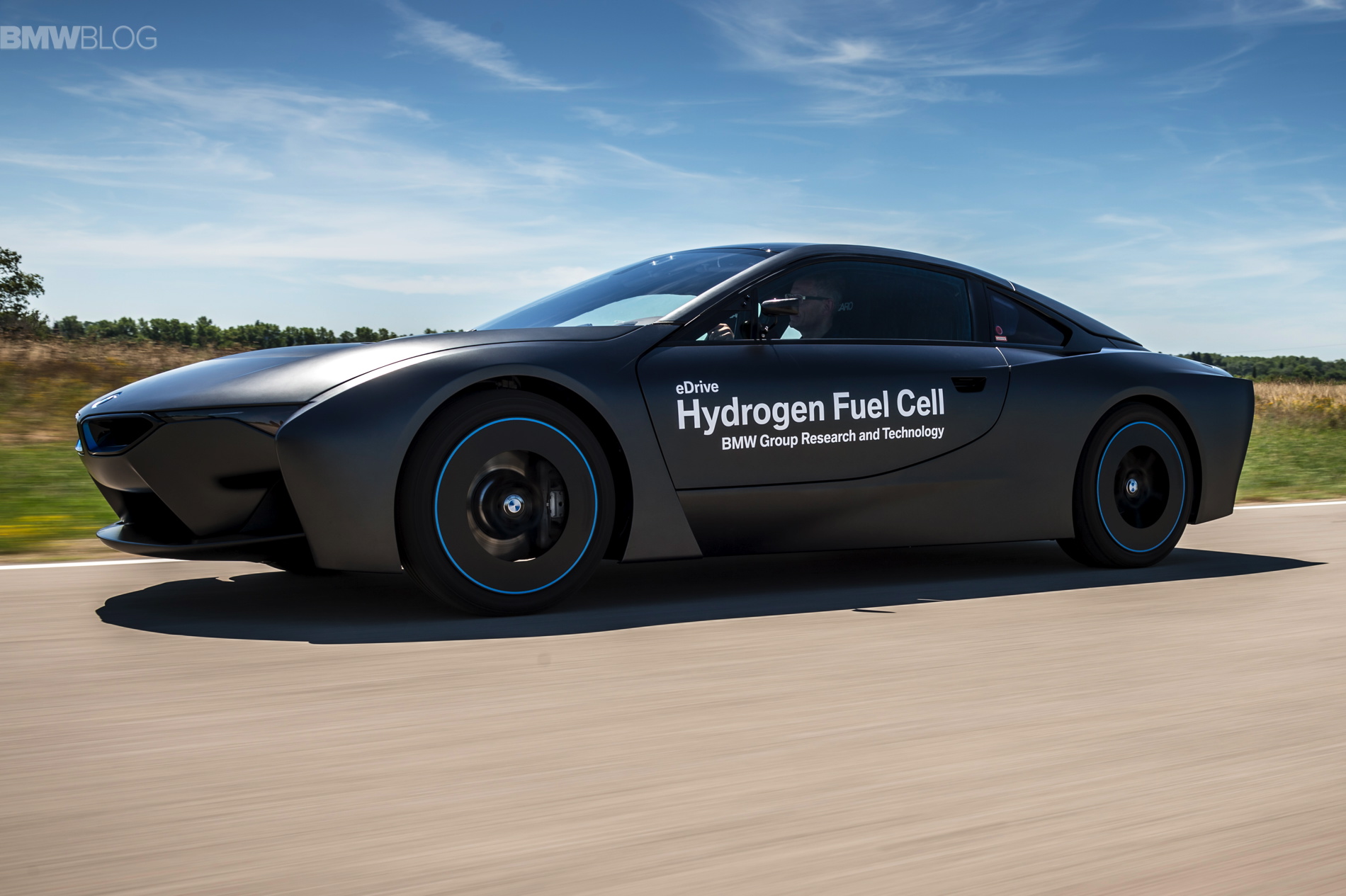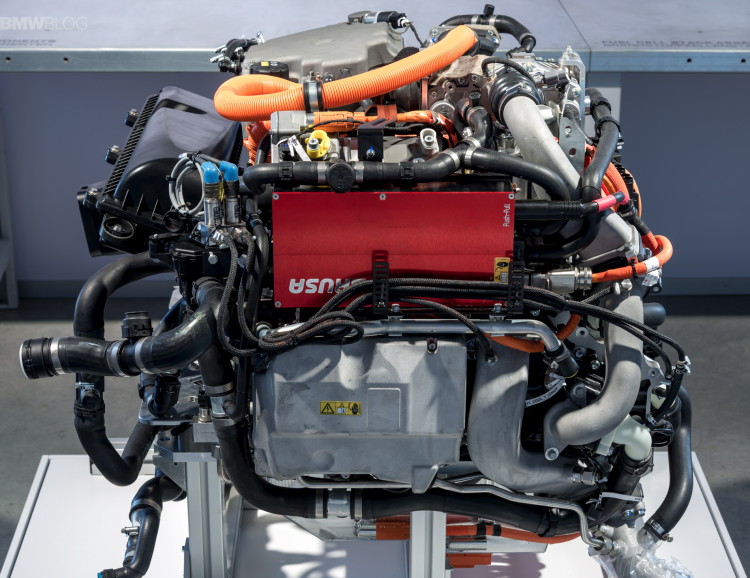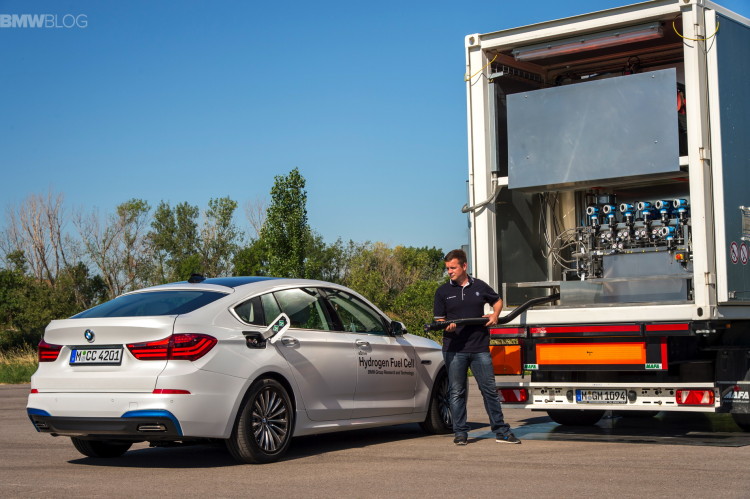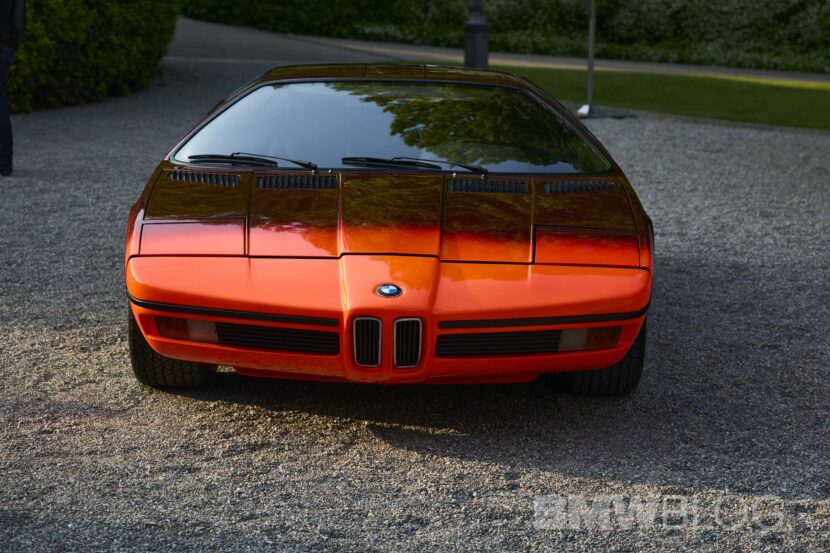Ever since the creation of the i Division, BMW has become Tesla’s main competitor. No other company is accelerating its alternative fuel program lately like BMW and Tesla. Until now, that is. Toyota seems to be getting into the mix, and it seems to be siding with BMW. BMW has long been a proponent of plug-in hybrid and hydrogen technology, rather than full on battery-powered EVs. Tesla, and its eccentric owner, Elon Musk on the other hand have been fighting hard against such vehicles, claiming that pure EV is the only way to go. Well, Toyota seems to agree with BMW’s hydrogen ideas, as it has just developed the Mirai, the world’s longest range zero-emission vehicle, to put its money where its mouth is.
The Mirai is a fully electric propulsoon vehicle, just like the Tesla Model S, but instead creates its electricity via hydrogen fuel-cells, which combine hydrogen with oxygen to create the electricity. The Mirai also has an EPA-estimated 312 mile range on a single tank, compared to the Model S’ 270 miles of pure battery range. The main difference, however, is that the Mirai can be refilled with hydrogen in minutes and be back on its way, whereas the Model S needs a couple of hours to fully recharge. This hydrogen technology found in the Mirai is being utilized by both Toyota and BMW, as both companies believe that this is the way of the future “The Mirai is now poised to usher in a new era of efficient, hydrogen transportation,” said Jim Lenz, Toyota’s North American CEO.
It’s not hard to see why Lenz, as well as the rest of Toyota and BMW, would feel that way. Hydrogen is very cheap, in comparison to gasoline, emits zero pollutants, can be refilled in minutes and is the most abundant element in the universe. So it seems as though hydrogen cars are the perfect answer to all of our problems.
Musk, however, has been an avid opponent of such technology, even going as far as to call hydrogen “so bullshit”. He does have some valid arguments against hydrogen. Hydrogen fuel cells, at the moment, are very expensive to create and so is creating the compressed hydrogen. Electricity is also easier to harness otherwise, as it can come from solar power, wind power or from the grid. But by far the biggest argument against hydrogen fuel-cell cars is the infrastructure. At the moment, hydrogen fill-up stations are as few and far between as electric ones, probably even more so, actually. So if you have a hydrogen-powered car, you can refill in minutes so long as you can find a station. Thus, range anxiety is still an issue.
However, in hydrogen’s defense, EV charge stations aren’t exactly everywhere, either. It’s not as if they’re as common as a Starbucks. The infrastructure can be created and is expanding rapidly, but hydrogen refill stations can be developed just like charging stations were. The only issue with complaining about the lack of infrastructure for hydrogen refill stations is that even if EV charge stations become extremely common, they will still take far longer to get you back on the road. A hydrogen refill station works much like a current gas station, so it seems like the infrastructure for hydrogen would be easier to create. EV charge stations need to be placed extremely specifically so as to allow for coordinated charging over long journeys. They also need to be placed near strip malls or attractions, so drivers have something to do while they wait.
Related: BMW i8 with Hydrogen Fuel Cell
Both technologies have their pros and cons. BMW and Toyota both feel that pure battery-powered EVs are the final solution, but acknowledge their technological shortcomings are too great at the moment and that hydrogen fuel cell-powered EVs are the right intermediate answer. Tesla feels that spending time and money on developing such technology and infrastructure, only to tear them both down again for battery-powered EVs, is a waste. It’s easy to see why each company is doing what they’re doing, but we don’t know who is right. What we do know is that the new Toyota Mirai will give us a much better look into hydrogen fuel-cell technology and how effective it is at replacing gasoline in our day to day lives.








































































